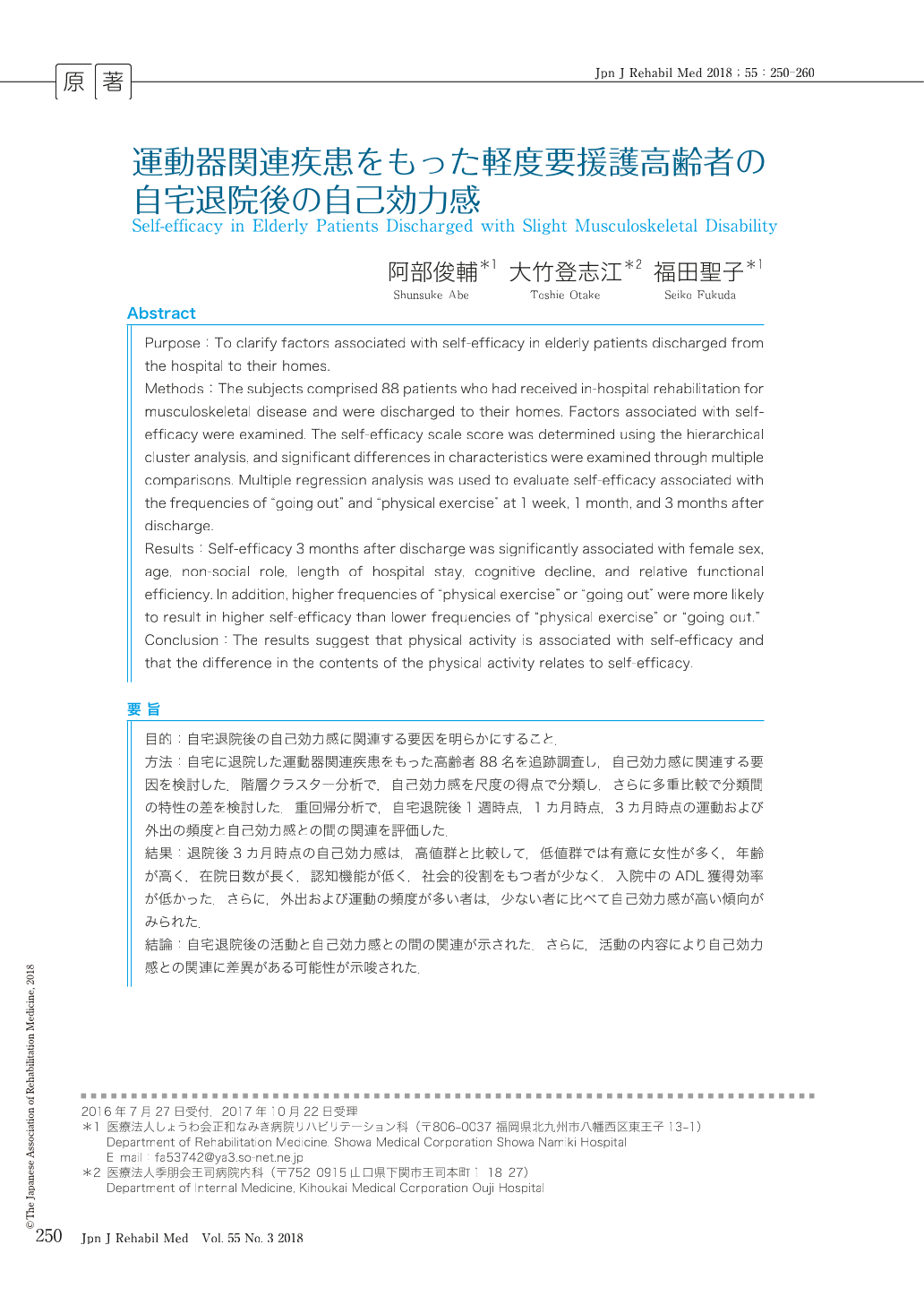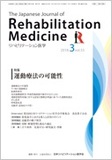Japanese
English
- 販売していません
- Abstract 文献概要
- 1ページ目 Look Inside
- 参考文献 Reference
要旨
目的:自宅退院後の自己効力感に関連する要因を明らかにすること.
方法:自宅に退院した運動器関連疾患をもった高齢者88名を追跡調査し,自己効力感に関連する要因を検討した.階層クラスター分析で,自己効力感を尺度の得点で分類し,さらに多重比較で分類間の特性の差を検討した.重回帰分析で,自宅退院後1週時点,1カ月時点,3カ月時点の運動および外出の頻度と自己効力感との間の関連を評価した.
結果:退院後3カ月時点の自己効力感は,高値群と比較して,低値群では有意に女性が多く,年齢が高く,在院日数が長く,認知機能が低く,社会的役割をもつ者が少なく,入院中のADL獲得効率が低かった.さらに,外出および運動の頻度が多い者は,少ない者に比べて自己効力感が高い傾向がみられた.
結論:自宅退院後の活動と自己効力感との間の関連が示された.さらに,活動の内容により自己効力感との関連に差異がある可能性が示唆された.
Purpose:To clarify factors associated with self-efficacy in elderly patients discharged from the hospital to their homes.
Methods:The subjects comprised 88 patients who had received in-hospital rehabilitation for musculoskeletal disease and were discharged to their homes. Factors associated with self-efficacy were examined. The self-efficacy scale score was determined using the hierarchical cluster analysis, and significant differences in characteristics were examined through multiple comparisons. Multiple regression analysis was used to evaluate self-efficacy associated with the frequencies of “going out” and “physical exercise” at 1 week, 1 month, and 3 months after discharge.
Results:Self-efficacy 3 months after discharge was significantly associated with female sex, age, non-social role, length of hospital stay, cognitive decline, and relative functional efficiency. In addition, higher frequencies of “physical exercise” or “going out” were more likely to result in higher self-efficacy than lower frequencies of “physical exercise” or “going out.”
Conclusion:The results suggest that physical activity is associated with self-efficacy and that the difference in the contents of the physical activity relates to self-efficacy.

Copyright © 2018, The Japanese Association of Rehabilitation Medicine. All rights reserved.


